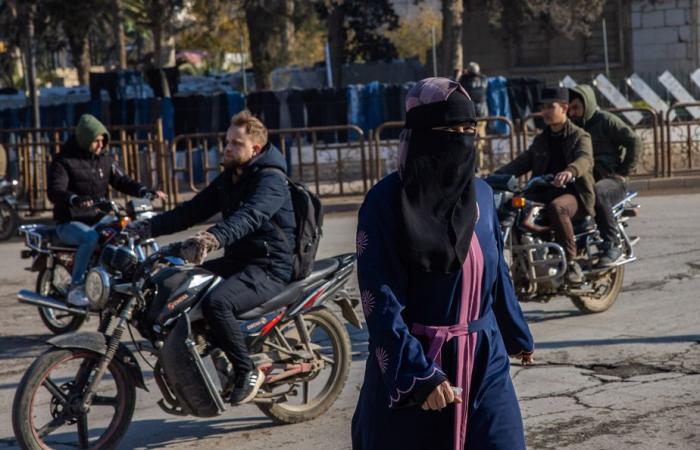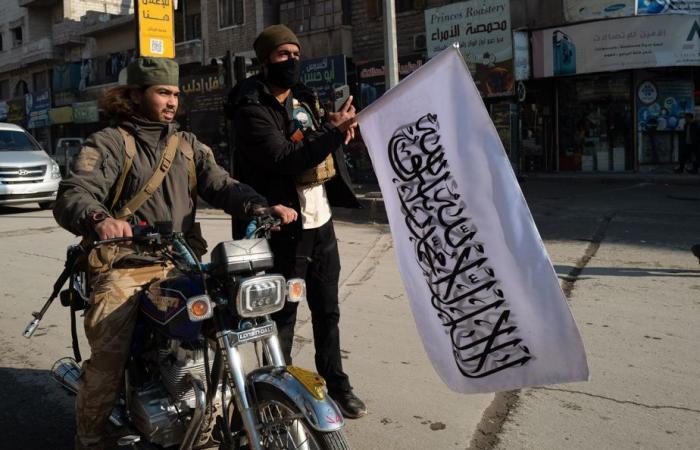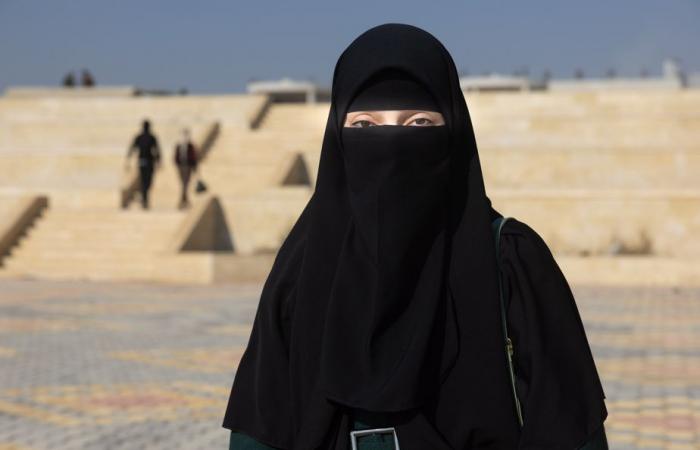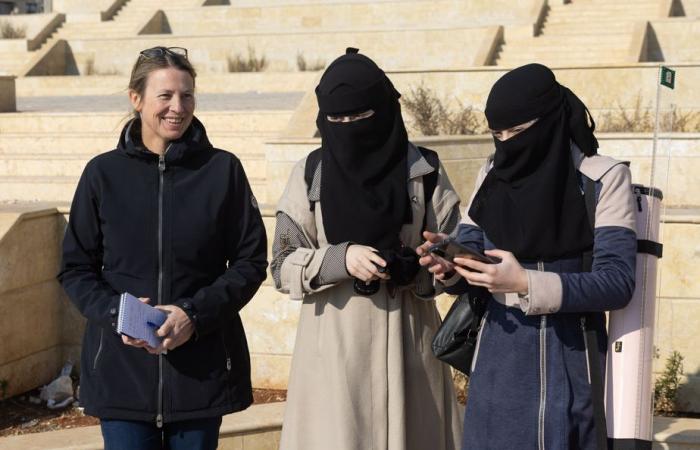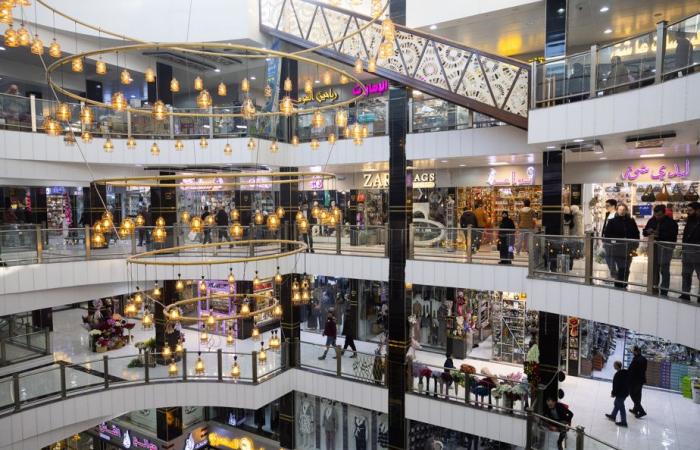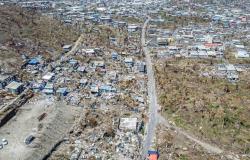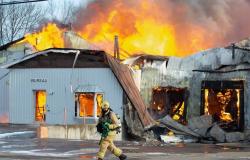(Idlib) She wears trendy white sports shoes and a forest green coat that covers her down to her ankles. The black niqab that veils her face reveals her laughing and sparkling eyes. And for Amani Haj Mohammad, there is no greater freedom than this.
Published at 5:00 a.m.
It must be said that the young woman has come a long way. At age 12, Amani left her village in the Idlib region with her mother to visit her older sister in Raqqa, central Syria. When the war broke out, mother and daughter found themselves stuck there. Raqqa fell to Daesh, the Islamic State armed group, which made it the capital of its so-called caliphate.
Amani spent her adolescence under bombs – and under a blanket of lead. She was forcibly married to a Saudi Daesh fighter. It was only when the caliphate collapsed in 2017 that she was able to flee. She was 17 years old. And two children under my arms.
Amani returned to Idlib, stronghold of Islamist rebels who seized power in Damascus, on December 8. Administered by the rebels since 2017, this enclave in the northwest of the country could provide a glimpse of how they will rule the whole of Syria tomorrow.
Of the place they will make for Syrian women, too.
PHOTO MARTIN TREMBLAY, THE PRESS
Rebels wave an Islamist flag in the center of Idlib.
The Hayat Tahrir al-Sham (HTS) group, which governs Idlib, adheres to an ultraconservative Sunni Islamist ideology. Formerly called the Al-Nusra Front, it has roots in the Islamic State of Iraq and Al-Qaeda. It has been designated a terrorist group by many countries, including Canada.
But Amani Haj Mohammad is better placed than anyone to say: HTS has little to do with Daesh. In Idlib, the rebel group has not restored democracy, far from it, but neither has it established a totalitarian regime that would cut off the hands of thieves and stone adulterous women. No one here is forced to close shop in broad daylight to go and pray at the mosque.
Now aged 23, Amani was able to make up for the years of schooling she had lost in Raqqa in Idlib. She is now studying pharmaceutical sciences at university. She hopes to one day work in a research laboratory.
A court annulled her marriage to the Saudi fighter.
But then, this niqab? Amani says she wears it by choice. By religious conviction. Probably, too, because that's what most women in Idlib do, unlike those in Aleppo or Damascus.

PHOTO MARTIN TREMBLAY, THE PRESS
Amani Haj Mohammad
Nobody forces me to carry [le niqab]. It's not like in Raqqa, where I had to dress all in black and cover my eyes, otherwise I would be arrested in the street.
Amani Haj Mohammad, 23 years old
“The government does not impose a strict dress code on women; they are the ones who choose,” insists Mohamed al-Asmar, spokesperson for the “Salvation Government” established by HTS to administer the enclave of 4 million inhabitants.
In short, in Idlib, this is how we live.
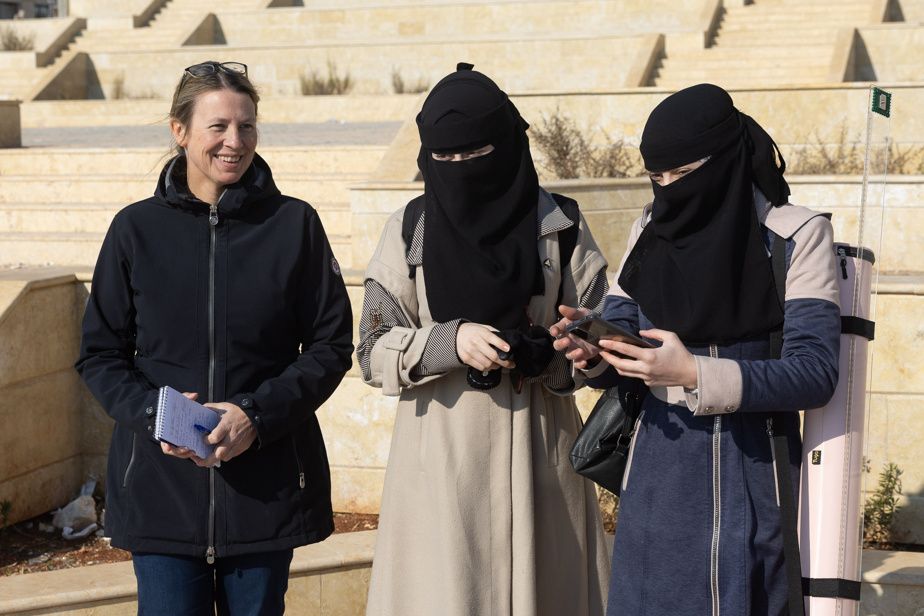
PHOTO MARTIN TREMBLAY, THE PRESS
Our columnist Isabelle Hachey was the attraction of the day among the students of the University of Idlib.
The anomaly in this country is me. On the steps of the University of Idlib, my blond head quickly becomes the attraction of the day. Students, curious and cheerful, line up to take selfies alongside me. They are enrolled in architecture, management, mathematics, physics…
Their fascination is understandable.
The terrorist designation of HTS by Western countries ensures that foreigners do not venture into the region. Even Syrians who have started visiting Idlib are surprised; they thought they would find a remote terrorist stronghold and discover modern life.
Mohamed al-Asmar, spokesperson for the “Salvation Government” established by HTS in Idlib

PHOTO MARTIN TREMBLAY, THE PRESS
The Alhmara Mall, a gleaming shopping center in Sarmada, in the Idlib region
In the small neighboring town of Sarmada, the Alhmara Mall parking lot has many cars registered in Aleppo, and even Damascus. Syrians come from far and wide to see with their own eyes this gleaming multi-story shopping center, filled with goods straight from Türkiye.
“The joke going around here is that Dubai will soon be jealous of Idlib,” says my interpreter, Ahmad Haj Mohammad, a hint of pride in his voice. We are (really) not there, of course. But Sarmada, backed by the Turkish border, is clearly a city in full swing, as evidenced by the imposing industrial district which is growing there.
Public services work well, in any case better than elsewhere. The region is one of the only ones in Syria where you can connect to very high speed internet. Its residents have access to electricity and running water at all times. An hour's drive away, the city of Aleppo only has electricity for three hours a day. It is also very often deprived of running water.
“It was from around 2021 that we started to notice real improvements,” says Ahmad, my translator. The electricity – supplied at a reasonable price by the government, which sources its supplies from Türkiye – has changed his life, like that of his wife. “A month ago, I bought him his first dishwasher…”

